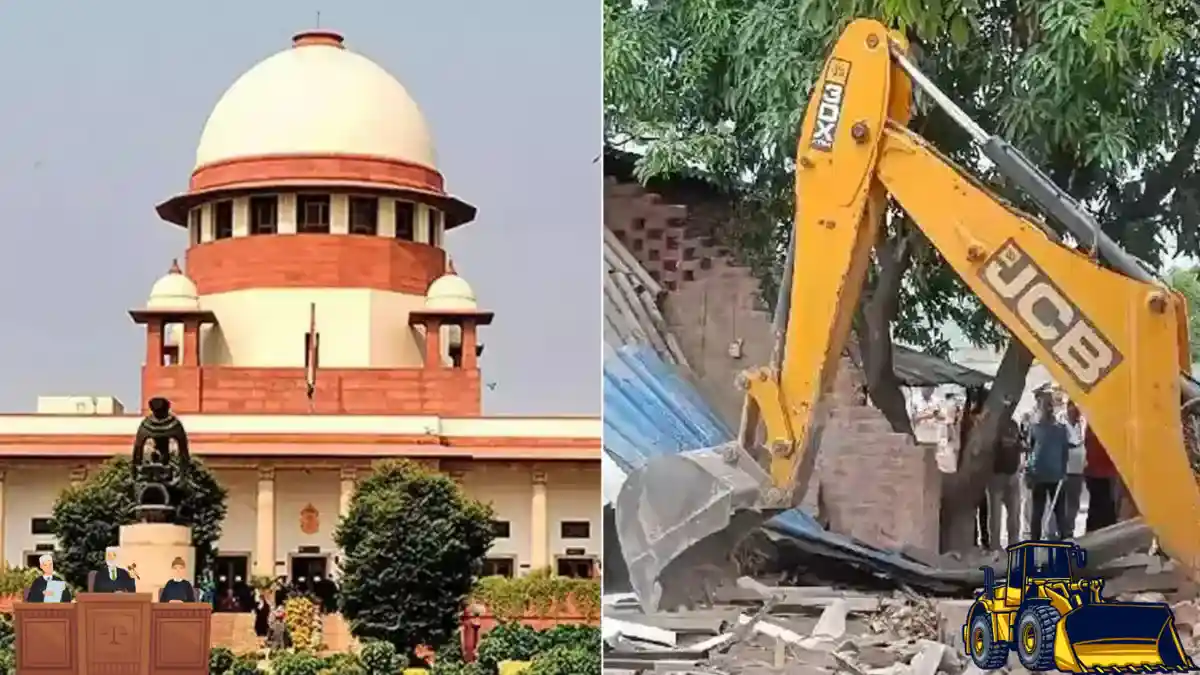
It has been noted earlier that protecting the rights of dwellers is what the law demands, Indian law seems to do the opposite, whereas in recent judgements the courts have repeatedly raised their voice against any abuse of power by authorities. This latest decision by the Supreme Court should allow a great number of Indians to rest easy at night, Especially after the violence that ensued on the Indian Muslims after the passing of the Citizenship Amendment Act, and what is most commendable, is the constitution of India, or rather the values that govern it.
What does this new development mark for the people, in this case, do all bulldozer baba supporters like to say and not just in India but every developing nation. The bulldozer justice meted out on premeditated suspicion stands legal, but bulldozing in the case of completing an order is not. The rationale behind this has always been to place the lives of those active members of gangs in danger.
What this development exactly means is that no one has the right to take the life of someone either on an assumption or without a justified legal order, and even more unjustified from a normal understanding is branding the act as legal, and Moreover, the law or the constitution is imperfect but people always have the right to infringe them or at least have the urge. What this indicates is that the court of law takes power, more than anything else which makes sense considering how flawed this system, or the world we live in is.
Judiciary and legal authorities need to be very vigilant and sensitive while taking a decision regarding demolitions and removals. Based on the judgements thats given, most judges seem to be reasoning without apparent power, based on a conviction fueled by the skilfully created talk of protecting civilians. A lot of damage is caused both orally and materially, and many of these communities get scattered due to the demolitions. Such consequences are clearly not able to provide clarity towards concerns raised. First, nations tend to look neocolonial and second the scope of what the law actually is appears distorted.
Protection of the environment is paramount, but mishandling and wanting control appear to be the two main symptoms. Regardless of how things evolve, inequalities will always exist, whether bidded or embedded and as a result if property is viewed as a ‘currency’, external actors will always win. In highly unequal societies with neocolonial trends, it is apparent why humanitarian intervention would not work. Credibility of the ruling appears to make society pass a message that laws are not created to uphold fairness but a system, a nation state with a dominant populace supporting it.
Considering how democracy functions and how judges globally have reason, it is bitterly ironic to expect them to be upholding humanitarian anti imperialism. When even the most basic concept of safety and duty to act for the benefit of others appears to be an increasing concern, why fight to protect. Wouldn’t accepting the gaps be better and embodied in defence chains? Seemingly yes, but accepting only bitter truths would mean discarding ethics entirely.
In the case of the citizens, this ruling indeed is a positive covering for their fundamental rights. It assures that abuse of power in being judges and meting out punishment is not permitted, and if a crime is committed, the appropriate procedures in law have to be adhered to. Citizens of the nation are keen to see that this case will enable a better administration of justice without discrimination in the enforcement of rules.
This judgment of the Supreme Court makes the point that it is not enough to provide for justice, the justice must be tempered with mercy. It advocates a situation that there is equality of application of the law and no one’s right is violated by denying him or her the right of being heard. As the country responds to this significant decision, its implications will probably reform the way justice is delivered in the times to come.